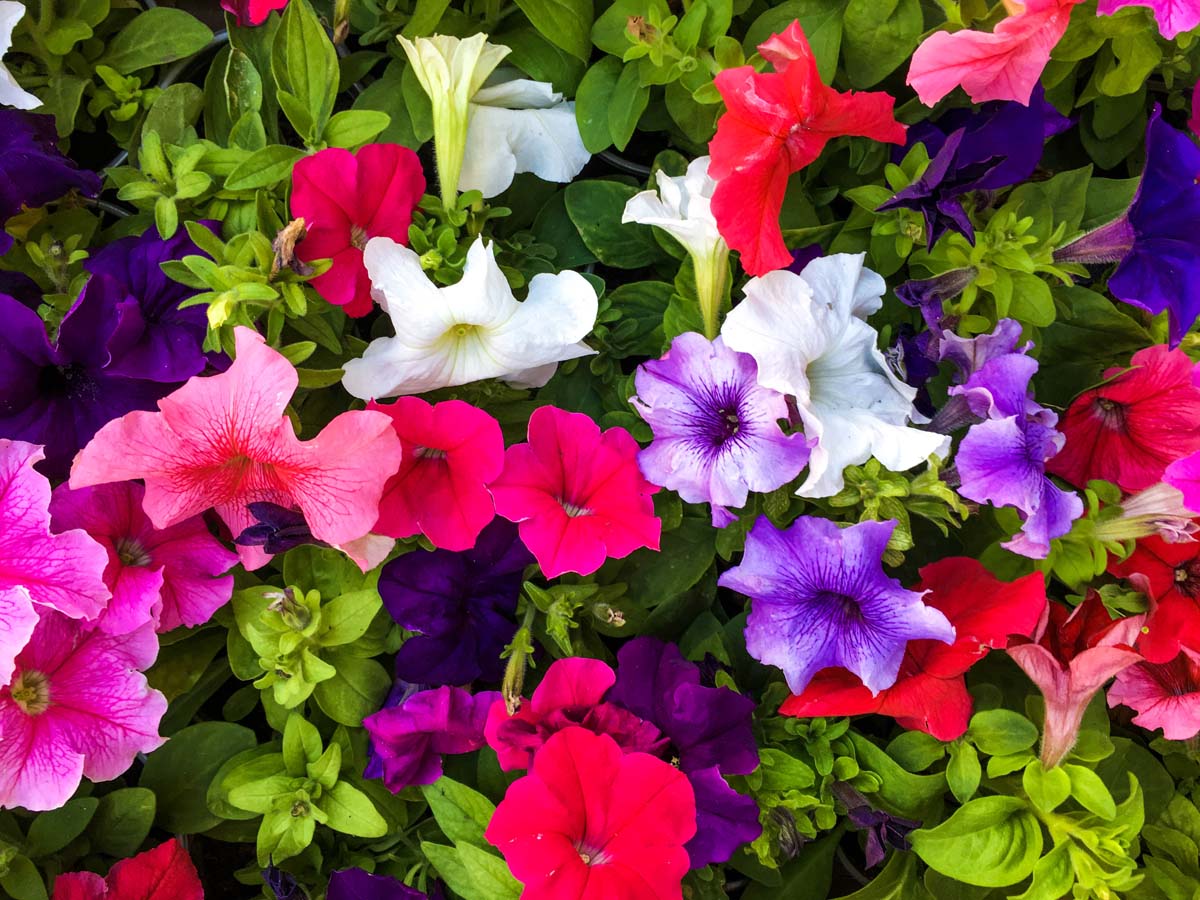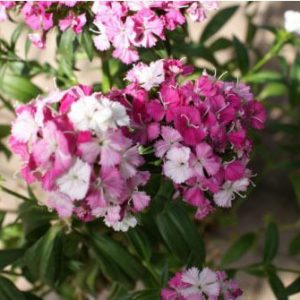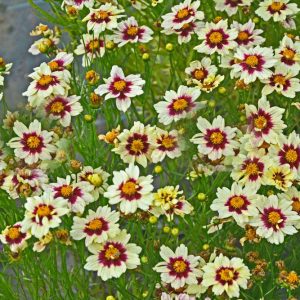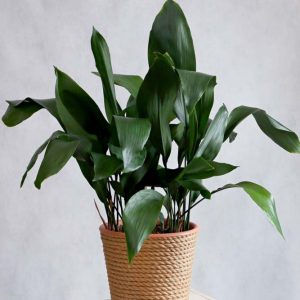Description
Petunia –
There are about 35-40 species of fairly fast growing spreading to erect, branching, sticky hairy annuals and perennials in the Solanaceae family, in this genus. They occur naturally on stony slopes, steppes, and disturbed ground in South America. They produce simple, smooth edged, ovate to lance shaped, mid to dark green leaves are mostly alternate, upper leaves may be opposite. Showy solitary, 5 lobed, fluted, single or double, saucer or trumpet shaped flowers are borne in the upper leaf axils.
Many cultivars have been produced, derived primarily from P. axillaris, P. integrifolia, and P. violacea. Although perennial, they are grown as annual, and are particularly useful in coastal gardens or in poor soils. The flowers, 1 1/4-5″ across are borne from late spring to late autumn, in a variety of colors, mainly pink, red, pale yellow, violet blue, or white. Some have dark veining, central white stars, halos (throats in contrasting colors), or picotee margins. Leaves are usually 2-5″ long.
The cultivars are divided into 2 groups. Grandiflora petunias have very large flowers, generally to 4″ across. Many are susceptible to rain damage and, where rain is frequent, are best grown in sheltered hanging baskets and containers. Multiflora petunias are bushier than Grandiflora petunias, with smaller flowers, to 2″ across, produces in greater quantity. They are usually more tolerant of wet weather, and are ideal for summer bedding or mixed border, individual plants may carpet an area up to 3′ feet across and are great for hanging baskets.
Grow these frost tender plants in light, well drained soil in full sun, with shelter from wind. Deadhead to prolong flowering.
Prone to aphids, caterpillars, leaf miners, gray mold, bacterial soft rot, cucumber mosaic virus, and impatiens necrotic spot virus.





